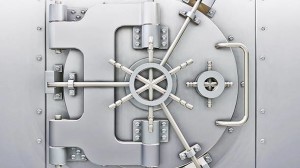 It’s time to lock that digital back door to your private information to defend against the government’s unrestricted intrusion on what was once presumed to be the safe and easy bit and byte beltway that we call the Internet.
It’s time to lock that digital back door to your private information to defend against the government’s unrestricted intrusion on what was once presumed to be the safe and easy bit and byte beltway that we call the Internet.
You may not think to lock the doors to your country home until there’s a burglary or home invasion in your neighborhood.
We enjoyed that open country door freedom on the Internet until the sobering disclosures more than a year ago by former CIA computer specialist, Edward Snowden.
Snowden has since made it crystal clear that, if you’re not encrypting what your communicating, your information is likely flowing by the petabyte into NSA’s multi-million dollar data-devouring Super Cray Computer, once called “the Black Widow.”
Since the disclosures, the President, the NSA, and the Congress have lacked the resolve to discourage the government’s uninhibited surveillance of us, its citizens.
Congress did hesitate to expand the Communications Assistance for Law Enforcement Act of 1994 (CALEA), requiring telecom companies to build back doors so that that the government could wiretap communications by phone, broadband internet and VoIP traffic. Think of it as the government “TiVo” system operating in real time.
Congress resisted efforts to expand the government’s snooping coverage over email and smart phone content.
But restraint is not enough. Every citizen now looks askance at data security. Nation-states around the world resist using our servers and networks because assurances by our intelligence and law enforcement community have proven entirely untrustworthy.
When you send a privileged email to a priest, physician or legal counsel, a protected communication, that’s nobody’s business, not even that you’ve had that communication.
The intimate exchanges among family and friends, and even whom you associate with, these are First Amendment exertions, the freedom to associate.
If the government is not going to back off its snooping into our privileged and private information and associations, what are we to do?
In 1991, Phil Zimmerman, at PKWare, Inc., created a symmetric data encryption and decryption program, relying on an algorithm, he entitled, “Pretty Good Privacy (PGP).” PGP was simple to operate. You encrypted communications with a public “key” (for the sender) and decrypted with a private key (for the recipient). For a period of time when I worked in Congress, we had a special project testing this system. The program is still available online (http://www.pgpi.org/ ). It’s free. So is the source code.
Since the government won’t dial back its intrusive behavior, citizens are encrypting their communications to protect the privacy that they expected they had but found had been corrupted by our own government.
Apple and Google, to secure the devices and networks by which we communicate, have introduced and are introducing encryption software to protect our private information, emails, photos and contacts, a complex 6-digit algorithm controlled by us folk, so that we don’t retreat from the grid, and run e-industry’s business plan off the IT-highway. One estimate is that it would take years to break this 6-character passcode.
The government’s reaction is that it should be able to continue to rifle through our communications on the off chance that some kidnapper will escape police detection if they can’t snoop. By that questionable standard, we should allow house to house searches to see what citizens are hiding in their homes. Any decent law enforcement official knows there are plenty of alternative legitimate avenues to investigate crime including kidnappings.
Until the government can restrain its impulse to snoop into our lives, citizens should protect their private information themselves with encryption.
